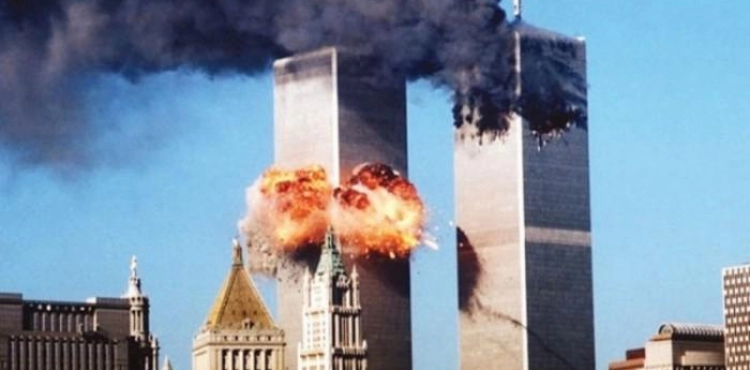A report prepared by the prestigious American Brown University confirmed that the conflicts that took place since the beginning of the "war on terror" and US military interventions have caused the displacement of at least 37 million people around the world, most of them From Arabs and Muslims.
The report reviewed by Jerusalem, which was issued on September 8, 2020 to coincide with the nineteenth anniversary of the September 11 terrorist attacks on New York and Washington on this point, says: “The number of 37 million displaced persons is a conservative figure, as the true number of displaced persons is likely to be between 48 and 59 million. Displaced persons, and while about 25 million of these displaced people returned after the uprooting, they returned to their hometowns or homes, instead of the material loss and the psychological and physical wounds they suffered as a result of the uprooting.
The thirty-page report finds that the US invasion of Iraq and the long years of instability that followed it uprooted at least 9.2 million people so far, which is the most expensive of eight major US military operations, most of which are still ongoing.
The report touched upon the US interventions since the attacks of September 11, whether direct, as is the case in Iraq and Afghanistan, or the conflicts in which it participated, as is the case in the wars in Libya and Syria, as well as sending weapons and directing air strikes in Yemen, Somalia and the Philippines.
The report estimated, based on data from the United Nations High Commissioner for Refugees and the Internal Displacement Monitoring Center, the number of displaced people as follows: in Syria at 7.1 million people, in Afghanistan at 5.3 million, in Yemen 4.4 million, Somalia 4.2 million, Pakistan 7.3 million, and the Philippines at 1.7 Million, and Libya, 1.2 million displaced.
While the Brown University report does not hold the United States alone responsible for this massive displacement, attributing the matter to "the multiplicity of combatants and other powerful actors, centuries of history, and broad political, economic and social forces", the report clearly explains how the US war on terror is Who unleashed these conflicts.
He says, "Since the administration of US President George W. Bush launched a" global war on terror, "following the Al Qaeda attacks on September 11, 2001 on the United States, the US military has done so: It has fought a continuous war for nearly two decades; 2) waged wars or Participation in other combat operations in at least 24 countries; 3) These wars in the countries on which the lives of war have been waged have destroyed countless amounts of lives, both civilians and combatants.
The report adds, "While the United Nations has provided reasonable figures for displacement in Iraq and Afghanistan, the reality indicates that the numbers are much more catastrophic."
Regarding who bears the responsibility, the report says, "In documenting the operations and the scale of the displacement caused by the wars of the United States after September 11, 2001, we do not bear all responsibility to the government of the United States or the United States as a country alone, as the reasons are not so simple, and always involve a multiplicity of factors. Many, such as the multiplicity of fighters, their different nationalities, and other powerful actors over the centuries, political grievances, and the factors of chronic poverty, etc. "But the military weight falls on the shoulders of the United States.
The United Nations announced Thursday, September 10, 2020, that about 80 million people, or more than 1% of humanity, have been forced to leave their homes to escape violence and persecution and are now living far from their homes, in a record number that has doubled within a decade.
In its annual flagship report, Global Trends, published Thursday, the High Commissioner for Refugees considered that at the end of 2019, there were 79.5 million people among refugees and asylum seekers or people displaced within their countries, while the chances of their return diminish.
The report indicated that Syrians, Venezuelans, Afghans, South Sudanese and Rohingya people fleeing Myanmar who do not have any nationality are at the top of the list of refugees, asylum seekers and displaced persons.
Commissioner Filippo Grandi said: "1% of the world´s population cannot return to their homes because of wars, human rights violations and other forms of violence."
He added that since 2012, a tendency has been observed to increase the numbers from year to year, considering that this means "there have been more conflicts and more violence."
"The international community is divided, unable to bring peace, and therefore the situation will continue to worsen," Grandi said. "I fear very much that the next year will be worse than this year."












